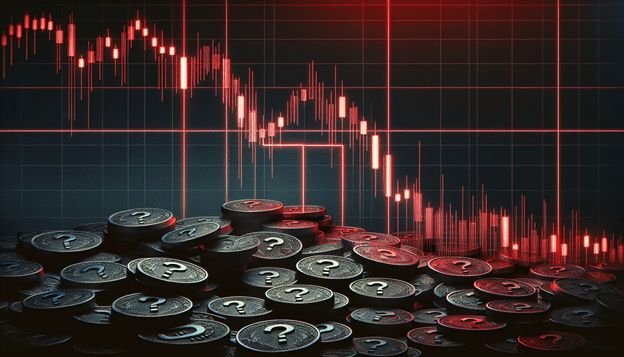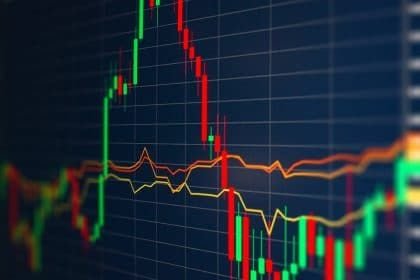In a significant development within the cryptocurrency space, Donald Trump’s crypto venture, World Liberty Financial, announced plans to launch a dollar-pegged stablecoin, USD1. The announcement, made on March 25, follows a successful fundraising round, where the company raised over half a billion dollars from selling a separate digital token known as $WLFI.
Details of the USD1 Stablecoin
World Liberty Financial’s stablecoin, named USD1, will be pegged to the U.S. dollar, maintaining a consistent value of $1 per token. The company confirmed that the stablecoin would be fully backed by a diversified reserve portfolio comprising U.S. Treasuries, dollars, and other cash equivalents. Regular audits by an independent third-party accounting firm will verify these reserves, although specific details about the auditing firm and the precise launch date remain undisclosed.
Stablecoins like USD1 are digital currencies designed to mitigate volatility by anchoring their value to stable assets like national currencies, commodities, or other financial instruments. USD1 aims to compete directly with established stablecoins such as Tether (USDT) and USDC, both dominant players in the cryptocurrency market.
Rising Popularity of Stablecoins
Stablecoins have become a fundamental component within the crypto ecosystem, particularly for facilitating smooth and cost-effective transactions across different cryptocurrencies or converting funds into traditional cash. According to data provider CoinGecko, stablecoins currently boast a combined circulation exceeding $237 billion, highlighting their growing importance.
The profitability of stablecoin issuers has increased significantly due to rising interest rates globally. For instance, Tether, the leading stablecoin issuer, reported profits surpassing $13 billion in the past year, emphasizing the lucrative potential within this segment.
Strategic Vision of World Liberty Financial
Zach Witkoff, co-founder of World Liberty, highlighted that the primary target audience for USD1 includes “sovereign investors and major institutions,” emphasizing its utility for secure, efficient, and seamless cross-border transactions. The firm’s long-term vision positions it to become a major competitor within institutional financial services by providing decentralized financial solutions.
World Liberty Financial was established notably just two months before Trump’s victory in the U.S. presidential election. Its inception was publicly announced by Trump alongside his three sons and real estate magnate Steve Witkoff, the father of co-founder Zach Witkoff, and Trump’s Middle East envoy.
Trump’s Cryptocurrency Advocacy
Donald Trump’s involvement with cryptocurrency has been a focal point of his political narrative. Campaigning as a “crypto president,” Trump has pledged significant reforms in U.S. cryptocurrency regulations. He advocates reversing the stringent regulatory actions imposed during President Joe Biden’s administration, which many in the crypto sector saw as overly restrictive.
However, Trump’s cryptocurrency ventures, including his previously launched meme coin, have drawn scrutiny and criticism from government ethics watchdogs and political adversaries who cite potential conflicts of interest arising from his dual roles as a political figure and crypto entrepreneur.
Fundraising Success and Market Potential
World Liberty’s recent fundraising achievements further solidify its robust entry into the market. The company announced last week it had successfully raised $550 million through the sale of $WLFI, a separate cryptocurrency token distinct from the newly announced USD1 stablecoin.
Kevin Lehtiniitty, CEO of payments infrastructure firm Borderless.xyz, commented on the competitive landscape USD1 will face. “Launching a stablecoin is relatively straightforward,” he explained, “but building a thriving ecosystem that widely adopts it is far more challenging.”
He further questioned whether Trump’s crypto ambitions signify competition or potential collaboration opportunities with existing American crypto businesses, underscoring the complexities inherent in integrating a new stablecoin into an established financial landscape.
Partnership with BitGo and Binance
To bolster USD1’s credibility and institutional appeal, World Liberty announced that reserves backing USD1 will be securely held by BitGo, a reputable custody provider based in California. BitGo’s involvement is a significant endorsement, given its established role in offering prime brokerage services, institutional-grade liquidity, and trading capabilities for digital assets.
Moreover, USD1 is set to launch initially on Ethereum and Binance Smart Chain (BSC), two leading blockchain platforms widely used for decentralized finance (DeFi) and crypto transactions. Binance Smart Chain, launched by Binance in 2020, ranks as the fourth-largest blockchain by total value locked (TVL) in crypto assets, per CoinGecko.
Binance’s Controversial History
World Liberty Financial’s partnership with Binance has drawn attention due to Binance’s previous legal troubles. Changpeng Zhao, Binance’s founder and former CEO, received a four-month prison sentence in the U.S. after pleading guilty to violations related to money laundering regulations. Binance also incurred a substantial fine of $4.3 billion from U.S. prosecutors for failing to report thousands of suspicious transactions, including those associated with designated terrorist groups.
Binance has yet to publicly comment on how this partnership with World Liberty Financial was established, leaving questions unanswered regarding the strategic alignment between the two firms amid ongoing regulatory scrutiny.
Competitive Landscape and Challenges
USD1 faces an uphill battle in distinguishing itself from established stablecoins like Tether and Circle’s USDC. Both incumbents already possess extensive market adoption, credibility, and deep liquidity pools, making it challenging for new entrants to secure significant market share rapidly.
However, USD1’s strategic advantages include Trump’s high-profile involvement, significant initial funding, and strategic partnerships with respected institutions such as BitGo. These factors may provide sufficient leverage to establish a robust market presence, particularly if it garners early adoption by institutional investors.
Regulatory Implications and Future Outlook
World Liberty’s entry into the stablecoin market coincides with an evolving regulatory environment in the U.S. Trump’s advocacy for deregulation contrasts sharply with recent approaches by regulators seeking greater oversight of digital assets to prevent financial risks and enhance investor protections.
The success of USD1 will heavily depend on its compliance with emerging regulatory standards, its ability to offer transparency around its reserves, and gaining institutional trust. World Liberty’s stated commitment to regular independent audits is a critical step towards establishing credibility and gaining acceptance from cautious investors and regulators alike.
Potential Impact on Crypto Market Dynamics
If successful, USD1 could significantly influence the crypto landscape, possibly reshaping perceptions around institutional involvement in cryptocurrency. Trump’s high-profile association with the project could attract both supporters and critics, amplifying attention and potentially driving adoption or opposition.
Furthermore, World Liberty’s integration with leading blockchain networks like Ethereum and Binance Smart Chain positions USD1 favorably for adoption within the rapidly expanding DeFi sector, potentially influencing market dynamics by providing a politically connected alternative to existing stablecoins.
Conclusion
Donald Trump‘s World Liberty Financial’s announcement of the USD1 stablecoin marks a significant moment within the crypto industry, combining political influence, financial innovation, and considerable market ambition. As USD1 prepares for launch, its success will hinge upon its ability to navigate complex regulatory landscapes, build market trust, and effectively compete with dominant stablecoins.
This development underlines the broader trend of political and institutional figures increasingly entering the cryptocurrency space, potentially reshaping market structures, regulatory approaches, and global adoption trends. As details continue to emerge about World Liberty’s strategic partnerships, reserve management, and institutional uptake, the crypto community and financial markets alike will closely watch the progress and impact of USD1.




